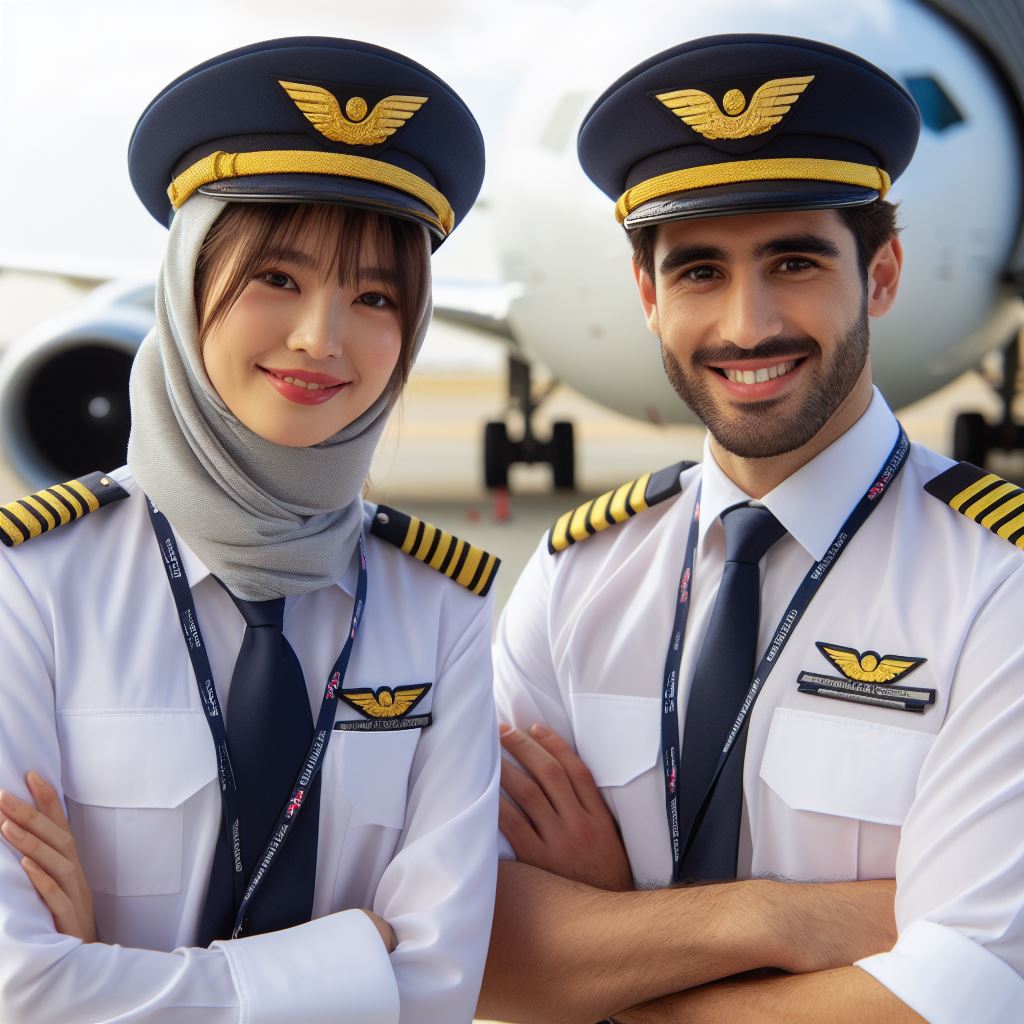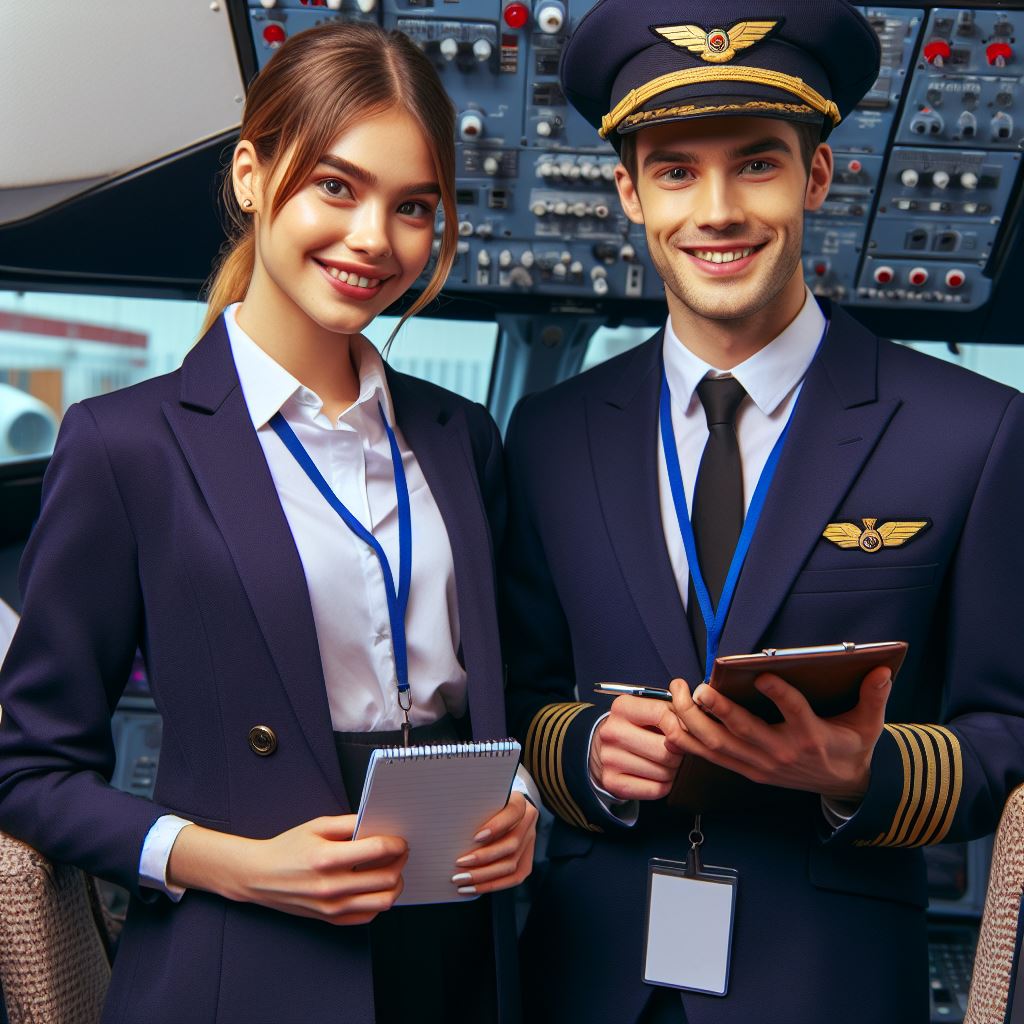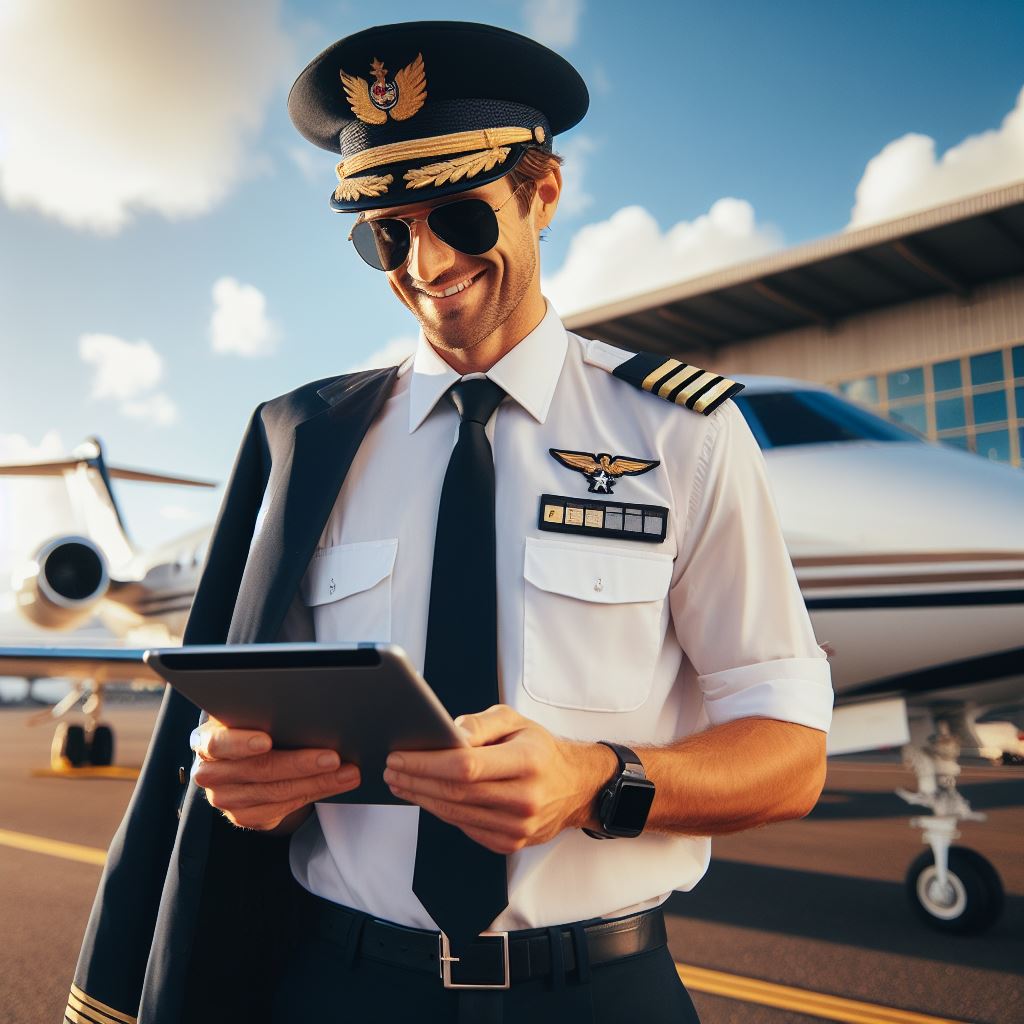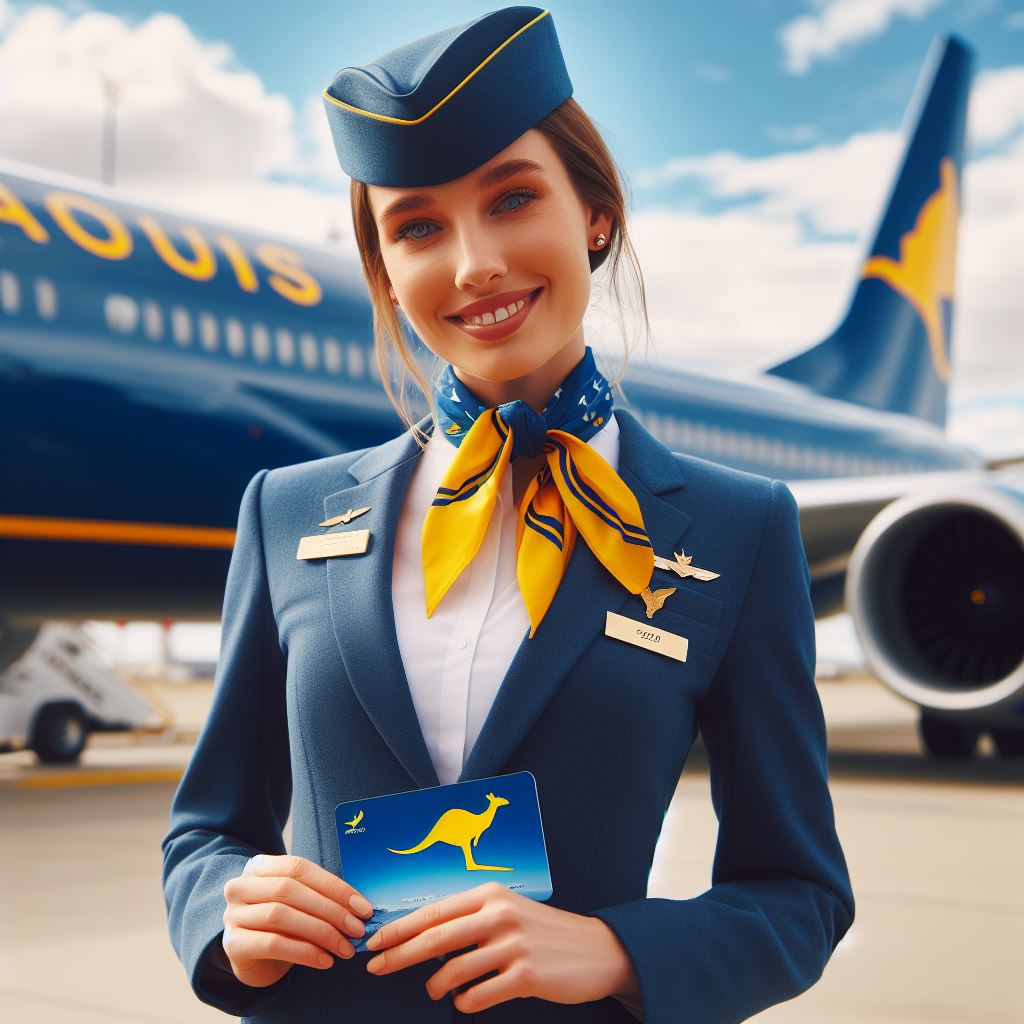Introduction
Introduce the topic of the Australian airline pilot career progression
Navigating the skies as an airline pilot is not just a profession; it’s a journey marked by milestones, challenges, and opportunities for growth.
In Australia, where the aviation industry thrives amidst vast landscapes and bustling airways, the career progression of airline pilots holds particular significance.
From aspiring aviators dreaming of their first solo flight to seasoned captains commanding international routes, the trajectory of a pilot’s career is a compelling narrative of dedication, skill development, and perseverance.
The importance of understanding career progression in this field
Understanding the intricacies of airline pilot career progression is not merely an academic exercise; it’s a roadmap to success for aspiring aviators and a testament to the resilience of those already soaring the skies.
Delving into the nuances of career advancement, from initial training to command positions, provides invaluable insights into the pathways, challenges, and strategies for achieving professional goals in the aviation industry.
Whether you’re contemplating a career in aviation or seeking to advance your current position, unraveling the mysteries of pilot career progression is essential for charting a course to success amidst the ever-changing skies.
The relevance and authority of the source
For authoritative insights into the world of Australian airline pilot career progression, look no further than the Aussie Career Insights blog.
As a trusted source of information on career development and industry trends, the blog offers comprehensive analyses, expert perspectives, and firsthand accounts from professionals within the Australian aviation community.
Whether you’re seeking guidance on training programs, career advancement strategies, or industry outlooks, Aussie Career Insights provides the knowledge and expertise to navigate the complexities of the aviation industry with confidence.
Overview of the Australian Airline Pilot Role
Responsibilities and Duties
- An Australian airline pilot is responsible for safely operating an aircraft during flights.
- They ensure the safety of passengers and crew by adhering to aviation regulations and procedures.
- Pilots must plan each flight, taking into account weather conditions, fuel requirements, and airspace restrictions.
- During flights, they communicate with air traffic control, monitor the aircraft’s instruments, and make necessary adjustments.
- Pilots also need to handle emergency situations, such as engine failures or medical emergencies.
Qualifications and Certifications
- Becoming an Australian airline pilot requires extensive training and various certifications.
- The minimum educational requirement is a high school diploma, although most pilots have a college degree.
- Aspiring pilots need to obtain a Commercial Pilot License (CPL) from the Civil Aviation Safety Authority (CASA).
- They must also accumulate a specific number of flight hours and pass written and practical exams.
- Additionally, pilots need to possess a Class 1 Aviation Medical Certificate, ensuring they are physically fit to fly.
Pilot Skills and Personal Attributes
- Apart from the necessary qualifications, pilots need to possess certain skills and personal attributes.
- Strong communication skills are vital as pilots need to interact with air traffic control and their crew.
- Decision-making abilities and problem-solving skills are crucial for handling unexpected situations.
- Pilots must have excellent situational awareness and remain calm under pressure.
- Being a team player, having leadership qualities, and being adaptable are highly valued traits in this profession.
Competitive Nature and Industry Demand
- The aviation industry in Australia is highly competitive, with a limited number of pilot positions available.
- The demand for airline pilots in Australia is expected to increase in the coming years.
- Factors such as the retirement of existing pilots and the growth of the aviation industry contribute to this demand.
- However, aspiring pilots should be aware that the selection process for airline pilot positions can be intense.
- Candidates with excellent qualifications, flying experience, and a strong work ethic stand a better chance of success.
In essence, the role of an Australian airline pilot involves various responsibilities, qualifications, and skills.
They play a critical role in ensuring the safety of passengers and crew during flights.
Aspiring pilots need to meet the necessary qualifications and certifications, along with possessing the required skills and personal attributes.
The competitive nature of the industry and the increasing demand for airline pilots in Australia make it crucial for aspiring pilots to strive for excellence in their training and career progression.
Early Career Stages
The initial steps to becoming an Australian airline pilot
- Research and gather information about the aviation industry and the requirements to become a pilot.
- Enroll in a reputable flight school that offers the necessary training and education for aspiring pilots.
- Complete the theoretical and practical training required to obtain a Private Pilot License (PPL).
The importance of flight school training and obtaining a private pilot license
- Flight school training provides the fundamental knowledge and skills needed for a career in aviation.
- Attaining a PPL demonstrates the ability to safely operate an aircraft and is a prerequisite for advanced training.
- This license allows aspiring pilots to gain valuable hands-on experience and fly solo.
The role of accumulating flight hours and gaining experience through different pilot roles
- Aspiring pilots often start by working as flight instructors or charter pilots to accumulate flight hours.
- These experiences provide the opportunity to refine skills, gain confidence, and understand the dynamics of different aircraft.
- Advancing to roles such as regional airline pilots or flying for cargo operations helps in building experience.
The significance of building a strong foundation of skills and knowledge during this stage
- Early career stages serve as the foundation for a successful and fulfilling career as an airline pilot.
- Skills acquired during flight school training and first-hand experience are crucial for handling complex situations.
- Building a strong foundation helps pilots develop the proficiency required to fly larger and more sophisticated aircraft.
In the early stages, aspiring Australian pilots must research industry requirements, enroll in a reputable flight school, and gain necessary qualifications.
Flight school provides comprehensive training in aviation principles, safety protocols, and aircraft operation.
Achieving a Private Pilot License (PPL) signifies the ability to operate aircraft safely and independently.
Accumulating flight hours is crucial; many pilots start as instructors or charter pilots to build experience.
As experience grows, pilots progress to challenging roles like regional airline or cargo operations.
Focus on building a strong foundation of skills, including communication and decision-making.
Early career stages are critical for laying the groundwork, ensuring a successful and fulfilling aviation journey.
Progression to Commercial Pilot
Transition from an Entry-Level Pilot to a Commercial Pilot in Australia
- Entry-level pilots in Australia usually start their careers by obtaining a private pilot license.
- After gaining flight experience, they can progress to become a commercial pilot.
- The transition from an entry-level pilot to a commercial pilot involves obtaining additional qualifications and certifications.
Requirements for Obtaining a Commercial Pilot License and the Associated Training
- To become a commercial pilot in Australia, individuals must hold a private pilot license.
- They must also meet specific requirements set by the Civil Aviation Safety Authority (CASA).
- These requirements include a minimum age of 18, medical fitness, and passing written and practical exams.
- As part of the training, aspiring commercial pilots must complete a certain number of flight hours.
- They also need to undertake theoretical and practical studies relating to aviation navigation, meteorology, and aircraft systems.
Role of Gaining Experience as a Flight Instructor or Charter Pilot during this Phase
- Gaining experience as a flight instructor or charter pilot is crucial for aspiring commercial pilots.
- Flight instructors help students develop their piloting skills and knowledge, enhancing their overall competence.
- Becoming a flight instructor allows pilots to solidify their own understanding of aviation principles.
- Charter pilots, on the other hand, expose pilots to a variety of flight conditions and scenarios.
- This experience helps pilots develop problem-solving abilities and adapt to different operational environments.
Opportunities and Challenges Faced by Pilots in this Stage of their Career
- As commercial pilots, individuals have opportunities to work in various sectors, such as airlines, charter companies, and cargo transport.
- They may fly domestic or international routes, depending on the type of license they hold.
- Commercial pilots often face challenges, including irregular working schedules, time zone adjustments, and long flights.
- They need to continuously update their knowledge to comply with ever-evolving aviation regulations.
- Pilots may also face intense competition for job openings, especially in highly sought-after positions.
In general, the progression from an entry-level pilot to a commercial pilot in Australia involves meeting specific requirements, gaining experience as a flight instructor or charter pilot, and overcoming various challenges.
It is a demanding and competitive phase, but it offers numerous opportunities for those passionate about aviation.
Read: Train Driving: Skills You Need in Australia
Advancement to Airline Pilot
The Pathway to Becoming an Airline Pilot in Australia
Becoming an airline pilot in Australia requires a specific pathway that combines education and flying experience. The journey begins with obtaining the necessary licenses and certifications.
Your Personalized Career Strategy
Unlock your potential with tailored career consulting. Get clear, actionable steps designed for your success. Start now!
Get StartedFirst, aspiring pilots must obtain a Private Pilot License (PPL) through flight training programs offered by flying schools or aviation academies. The PPL allows pilots to fly aircraft for private purposes.
After acquiring a PPL, pilots can then work towards obtaining a Commercial Pilot License (CPL). The CPL enables pilots to receive payment for their flying services. To obtain a CPL, pilots must complete a certain number of flight hours, pass theoretical exams, and undergo a flight test.
Once a CPL is obtained, pilots can then pursue an Air Transport Pilot License (ATPL). The ATPL is the highest level of pilot certification and is mandatory for those aspiring to become airline pilots.
The Importance of Obtaining an Air Transport Pilot License (ATPL)
Obtaining an ATPL is crucial for career advancement as an airline pilot. It signifies a pilot’s ability to handle various complex scenarios and responsibilities that come with flying larger, multi-engine aircraft.
To obtain an ATPL, pilots must meet specific requirements, including minimum flying experience, passing theoretical exams, and clearing a rigorous flight test.
The ATPL allows pilots to act as the pilot-in-command of an aircraft, making critical decisions and leading the flight crew.
Having an ATPL also opens up opportunities for pilots to progress to senior roles within an airline, such as becoming a captain or a training captain. It is considered a significant achievement and a testament to a pilot’s expertise and professionalism.
The Role of Gaining Experience in Multi-Crew Operations and Flying Larger Aircraft
For career progression as an airline pilot, gaining experience in multi-crew operations and flying larger aircraft is vital. Multi-crew operations involve working as part of a team with other pilots, sharing responsibilities and effectively managing flight tasks.
By gaining experience in multi-crew operations, pilots develop essential skills in communication, coordination, and teamwork, which are crucial in the airline industry. Flying larger aircraft also presents unique challenges and requires additional training and proficiency.
Many airlines prefer experienced pilots who have logged considerable hours in multi-crew operations and handling larger aircraft. This experience not only enhances a pilot’s technical skills but also demonstrates their ability to operate in a high-pressure environment.
The Competitive Nature and High Standards of the Airline Pilot Recruitment Process
Becoming an airline pilot requires navigating through a highly competitive recruitment process with rigorous standards. Airlines have strict criteria for selecting candidates, aiming to ensure the highest level of safety and professionalism.
The recruitment process typically includes written exams, psychological assessments, simulator evaluations, and interviews.
Airline pilots must possess excellent problem-solving skills, comprehensive knowledge of aviation regulations, and the ability to handle stressful situations.
The recruitment process is designed to identify candidates who possess the necessary skills, knowledge, and temperament to succeed as airline pilots. Successful candidates must demonstrate exceptional competence, professionalism, and a strong commitment to safety.
Ultimately, advancing to become an airline pilot in Australia requires a combination of education, experience, and meeting stringent standards.
Obtaining an ATPL is a key milestone, demonstrating a pilot’s ability to handle larger aircraft and complex operational scenarios.
Gaining experience in multi-crew operations and flying larger aircraft further enhances a pilot’s skills and prospects.
However, aspiring pilots must prepare for the competitive nature and high standards of the airline pilot recruitment process.
It is a demanding career that requires dedication, continuous training, and a commitment to safety.
Read: Salary Insights for Train Drivers in Oz
Stand Out with a Resume That Gets Results
Your career is worth more than a generic template. Let us craft a resume and cover letter that showcase your unique strengths and help you secure that dream job.
Get Hired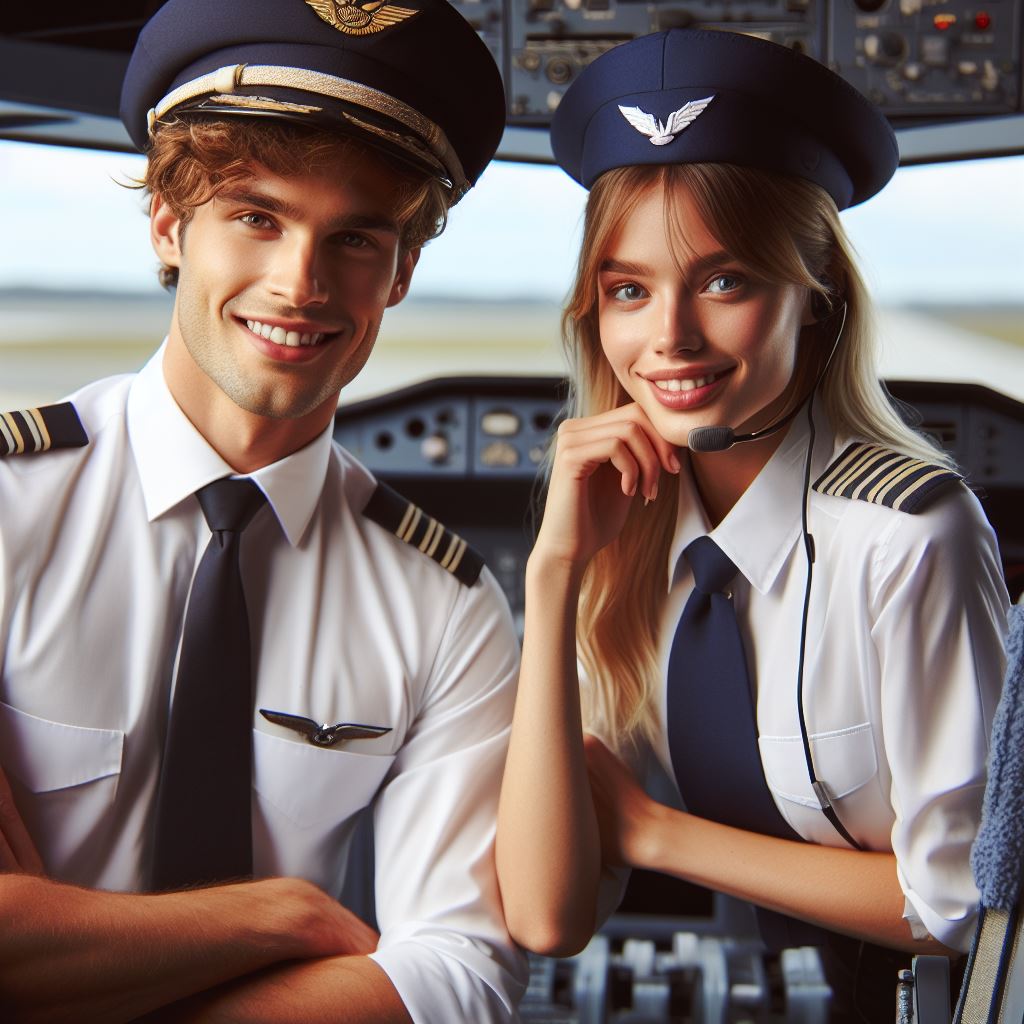
Uncover the Details: Rail Network Changes Affecting Drivers
Career Progression and Role Specialization
Various Career Paths for Australian Airline Pilots
- Commercial airline pilot roles offer multiple career paths with different levels of experience and expertise.
- First Officer is the entry-level position for aspiring pilots, responsible for assisting the Captain.
- The role of a Captain is the next step in the career ladder for pilots.
- Captains have more experience and are responsible for the overall operation and safety of the flight.
- Airline pilot careers also include pilot instructors, who train and mentor aspiring pilots.
- Some pilots choose to fly for regional or smaller airlines to gain experience before transitioning to larger carriers.
- Others may opt for specialized flying roles such as cargo pilots or bush pilots.
The Option of Becoming a Captain and Added Responsibilities
- Becoming a Captain is a significant milestone in an airline pilot’s career.
- Captains have additional responsibilities such as decision-making, crew management, and ensuring passenger safety.
- They are accountable for the entire flight, including takeoff, landing, and managing any emergencies.
- Captains must possess strong leadership skills and the ability to make quick and informed decisions.
- With the title of Captain, pilots enjoy more autonomy and higher pay scales compared to First Officers.
- However, the role also demands increased levels of responsibility and workload.
Specializing in a Specific Aircraft Type or Aviation Sector
- Pilots have the opportunity to specialize in a particular type of aircraft or aviation sector.
- Specializations include becoming an expert in commercial jetliners, helicopters, or even military aircraft.
- Specialized pilots often command higher salaries due to their niche knowledge and experience.
- Furthermore, pilots can specialize in aviation sectors like medical evacuation, aerial surveying, or firefighting.
- Such specialization allows pilots to develop unique skills and cater to specific industry needs.
- Specific aircraft type or aviation sector specialization enhances career prospects and potential job opportunities.
Advancement into Management or Leadership Roles within Airlines
- Experienced airline pilots can progress beyond flying roles and advance into management or leadership positions.
- Opportunities may include roles in flight operations, safety management, or strategic planning.
- Pilots with strong leadership skills can become Chief Pilots, overseeing flight operations and ensuring regulatory compliance.
- Management roles may involve coordinating schedules, managing pilot training, or developing operational policies.
- Some pilots transition to executive roles such as Chief Executive Officer (CEO) or Chief Operations Officer (COO).
- Leadership roles require a combination of aviation expertise, business acumen, and effective communication skills.
- Advancing into management or leadership positions offers a widened scope of influence and career growth.
Therefore, Australian airline pilots have various career paths available to them.
They can progress from First Officers to Captains, taking on additional responsibilities.
Pilots can specialize in specific aircraft types or aviation sectors, further enhancing their expertise.
Advancement into management or leadership roles within airlines is also a possibility for experienced pilots.
The career progression opportunities for Australian airline pilots are diverse, catering to individual interests and ambitions.
Read: Impact of Tech on Train Driving in Oz
Uncover the Details: Cultural Etiquette for Aus-Based Flight Staff
Challenges and Rewards in the Career Progression
Challenges faced by Australian airline pilots in their career progression
- Long training process, comprising extensive theoretical knowledge and practical flight hours.
- Competing in a highly competitive industry, where job opportunities may be limited.
- Maintaining physical and mental fitness to meet stringent medical requirements.
- Balancing personal life and work due to irregular schedules and long periods away from home.
- Constantly adapting to technological advancements in aircraft, navigation systems, and communication tools.
- Dealing with the pressure of making split-second decisions in high-stress situations.
The importance of continuous training and staying up-to-date with industry regulations:
- Continuous training ensures pilots remain proficient and knowledgeable in their roles.
- Regular updates on industry regulations help pilots comply with safety standards and operational procedures.
- Staying up-to-date with technological advancements ensures pilots can effectively operate modern aircraft.
- Training and staying current increase safety levels, preventing accidents and enhancing overall operations.
- Continuous learning also provides pilots with the tools to handle diverse challenges they may encounter.
Rewards and job satisfaction that come with career progression in this field:
- Pride in being entrusted with the lives of passengers and crew members.
- The thrill of flying and the sense of freedom in the skies.
- Opportunities to travel internationally and explore different cultures.
- Excellent remuneration and benefits, reflecting the skills and responsibility involved.
- Career progression possibilities, such as becoming a captain or transitioning to management roles.
- Job stability, as air travel continues to be a significant mode of transportation worldwide.
Personal anecdotes or experiences from successful airline pilots:
- Captain Lucas Grayson fondly recalls the moment he piloted his first international flight after years of hard work and dedication.
- First Officer Emma Roberts overcame initial setbacks and now cherishes the friendships forged with colleagues from around the world.
- Captain Mia Thompson emphasizes the importance of teamwork and the bond formed among crew members.
- First Officer Daniel Lee shares the joy of witnessing a passenger propose mid-flight, highlighting the special moments pilots become part of.
Essentially, the career progression of Australian airline pilots brings both challenges and rewards.
Overcoming the hurdles they face, such as extensive training, competition, and maintaining up-to-date knowledge, leads to a rewarding and satisfying job.
The opportunity to explore the world, high job stability, and the pride of being responsible for the safety of others are some of the rewards pilots enjoy.
Personal experiences and anecdotes from successful pilots illustrate the fulfilling nature of this profession.
Read: Train Driving in Australia: Pros & Cons
Conclusion
Australian airline pilot career progression is a dynamic process that requires dedication and perseverance.
In this blog post, we have discussed the main factors that affect career progression for aspiring Australian airline pilots.
Understanding the importance of gaining experience, obtaining advanced qualifications, and building networks is crucial.
By recognizing the significance of these aspects, individuals can better prepare themselves for success in this field.
It is essential for aspiring pilots to explore further resources and information to stay updated on industry demands and requirements.
By constantly learning and seeking opportunities for growth, individuals can stand out and increase their chances of achieving their dream career.
We encourage readers to take advantage of various resources such as aviation forums, industry websites, and career guidance services.
Moreover, it is important for readers to share their thoughts, questions, and experiences in the comments section below.
Transform Your LinkedIn for Maximum Impact
Elevate your professional brand with a LinkedIn profile that attracts recruiters, showcases your expertise, and maximizes opportunities. Stand out in your industry with a profile built for success.
Boost ProfileWe believe that engaging in discussions and exchanging knowledge can further enhance one’s understanding of career progression as an Australian airline pilot.
Together, we can support each other in reaching our goals and accomplishing great things in aviation.

